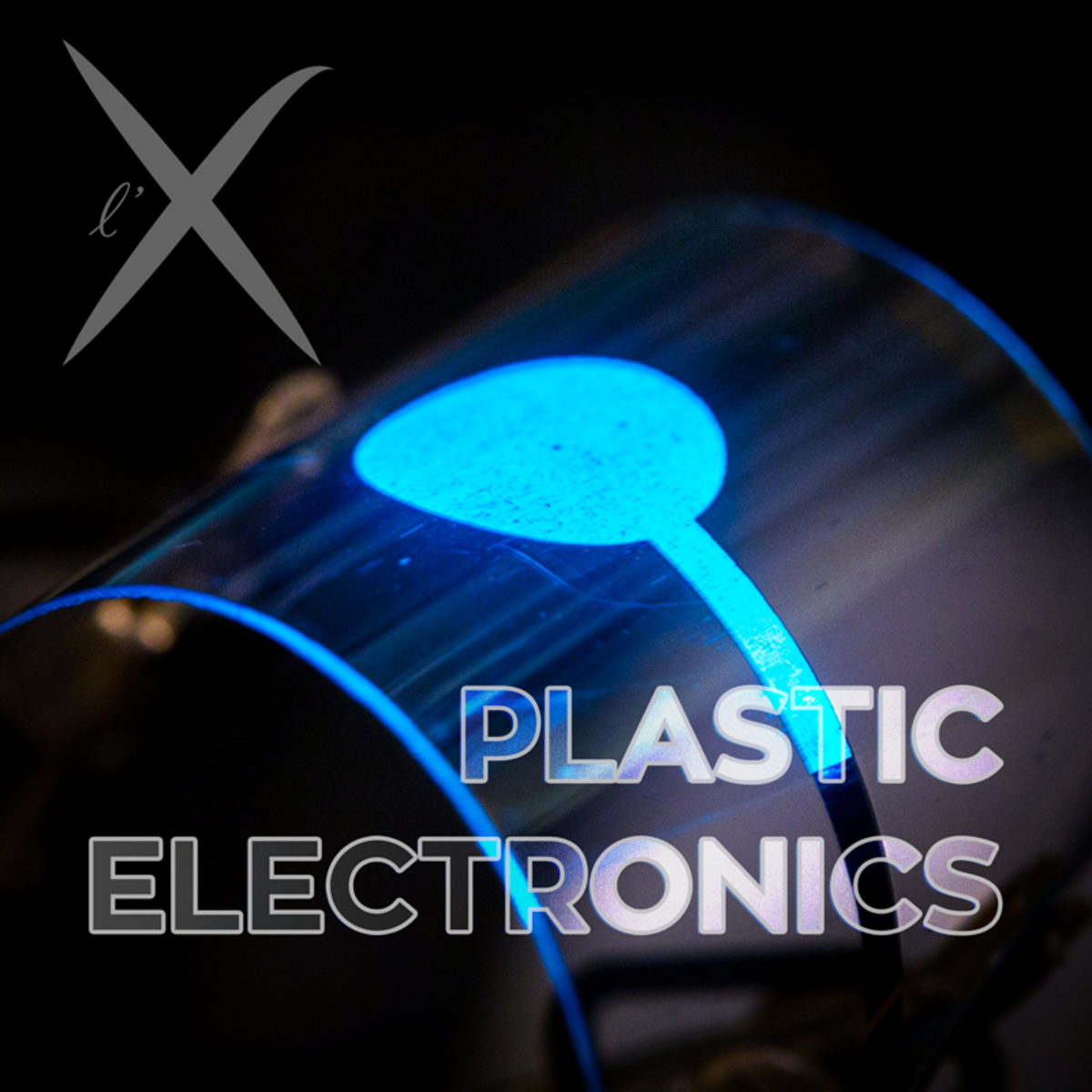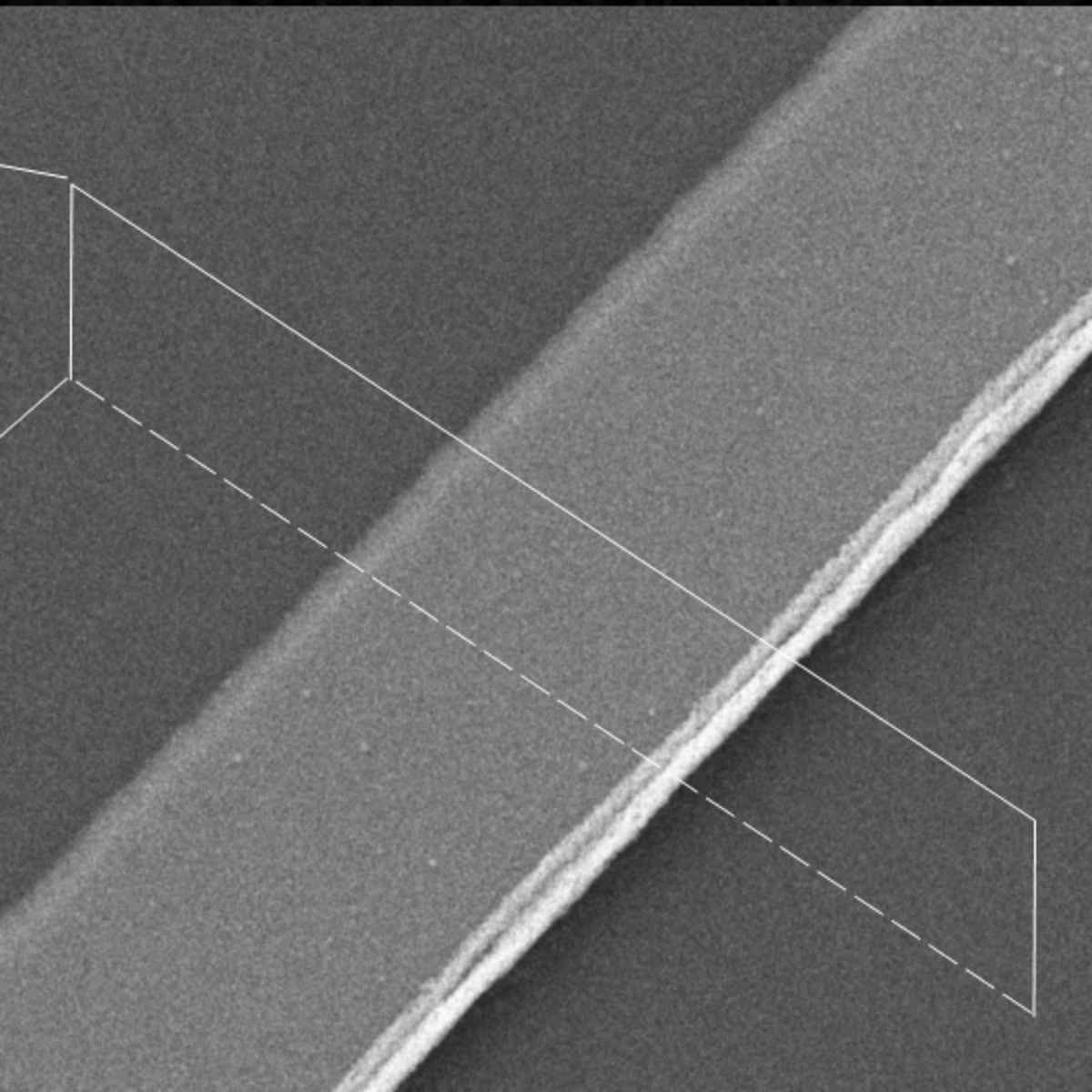Optoelectronics Engineer
Exploring a Career as an Optoelectronics Engineer
Optoelectronics engineering sits at the fascinating intersection of light (optics) and electricity (electronics). It is the field dedicated to designing, developing, and applying devices that source, detect, and control light. This interdisciplinary area draws heavily from physics, electrical engineering, and materials science to create the technologies that power much of our modern world, from high-speed internet communication to brilliant displays and advanced medical imaging.
Working as an optoelectronics engineer often involves tackling cutting-edge challenges. You might find yourself developing more efficient solar cells, designing the next generation of laser systems for manufacturing or healthcare, or creating novel sensors that push the boundaries of what we can measure. It's a dynamic field where innovation directly translates into tangible technologies that shape communication, energy, health, and entertainment.
What is Optoelectronics Engineering?
The Fusion of Light and Electronics
At its core, optoelectronics is about the interaction between light and electronic materials. Engineers in this field study and manipulate photons (particles of light) and electrons (particles of electricity) within semiconductor materials and other specialized substances. Their goal is to create devices that can convert electrical energy into light (like LEDs and lasers) or convert light into electrical energy (like photodiodes and solar cells).
This requires a deep understanding of quantum mechanics, electromagnetism, solid-state physics, and circuit design. Optoelectronics engineers are essentially building bridges between the world of photons and the world of electrons, enabling technologies that wouldn't be possible using purely electronic or purely optical methods alone. Think of it as teaching electronics how to see, signal, and work using light.
The field is inherently interdisciplinary. An optoelectronics project might involve materials scientists developing new light-emitting compounds, physicists modeling light propagation, electrical engineers designing control circuitry, and software engineers developing interfaces or processing algorithms. This collaborative nature makes it a stimulating area for those who enjoy working across different scientific and engineering domains.
A Brief History of Light-Based Technology
While the study of light dates back centuries, optoelectronics as a distinct field blossomed in the 20th century. Early milestones include the discovery of the photoelectric effect (explained by Einstein in 1905), which showed light could generate electricity. The invention of the transistor in 1947 laid the groundwork for modern electronics, including the control systems needed for optoelectronic devices.
The real revolution began with the invention of the laser in 1960 and the first practical light-emitting diode (LED) in 1962. These inventions opened the door to applications like optical data storage (CDs, DVDs) and efficient lighting. The development of low-loss optical fibers in the 1970s was another critical breakthrough, paving the way for modern high-speed telecommunications.
Since then, the field has seen rapid advancements in semiconductor materials, fabrication techniques (like photolithography), and device integration. This has led to the ubiquitous technologies we rely on today, constantly pushing towards smaller, faster, more efficient, and more capable optoelectronic systems.
Key Industries Fueled by Optoelectronics
Optoelectronics is not just an academic pursuit; it's a critical enabler for numerous multi-billion dollar industries. The telecommunications sector relies heavily on optical fibers, lasers, and detectors for transmitting vast amounts of data across continents and oceans. Without optoelectronics, the high-speed internet and global connectivity we take for granted wouldn't exist.
Healthcare is another major beneficiary. Lasers are used in surgery, diagnostics, and therapy. Endoscopes use optical fibers and miniature cameras for minimally invasive procedures. Advanced imaging techniques like Optical Coherence Tomography (OCT) rely on sophisticated optoelectronic components. Biophotonics, the application of light-based technologies to biology and medicine, is a rapidly growing specialization.
Consumer electronics are saturated with optoelectronic devices: the LED and OLED displays in smartphones, TVs, and laptops; the laser diodes in Blu-ray players; the image sensors in digital cameras; and the proximity sensors in mobile devices. Manufacturing, defense, aerospace, and renewable energy (solar cells) are other sectors where optoelectronics plays a vital role.
Optoelectronics in Your Daily Life
You interact with optoelectronic devices constantly, often without realizing it. The fiber optic cables bringing internet to your home or workplace are a prime example. The remote control for your TV uses an infrared LED to send signals. Barcode scanners at the supermarket use lasers or LEDs to read product information.
Modern cars incorporate numerous optoelectronic components, including LED headlights and taillights, interior ambient lighting, driver monitoring sensors, and increasingly, LiDAR systems for advanced driver-assistance features and autonomous driving. Even simple devices like smoke detectors often use an LED and a photodetector to sense smoke particles.
Solar panels converting sunlight into electricity are perhaps one of the most visible large-scale applications of optoelectronics. The continued development of more efficient and cost-effective photovoltaic materials and devices is crucial for the transition to renewable energy sources. This pervasiveness highlights the profound impact optoelectronics engineers have on technology and society.
The Role of an Optoelectronics Engineer
Core Job Functions and Responsibilities
The primary responsibility of an optoelectronics engineer is the design, development, testing, and manufacturing of optoelectronic components and systems. This involves applying principles of physics and engineering to solve practical problems related to the generation, manipulation, and detection of light.
Daily tasks can vary widely depending on the specific role and industry. An engineer might spend time using computer-aided design (CAD) software to model optical systems, simulating device performance using specialized software, working in a cleanroom environment to fabricate semiconductor devices, or setting up experiments in an optics lab to test prototypes.
Other common activities include analyzing test data, troubleshooting device failures or performance issues, collaborating with other engineers and scientists, writing technical reports and documentation, and staying abreast of the latest research and technological advancements in the field.
Working with Optoelectronic Devices
Optoelectronics engineers work with a diverse array of devices. Light Emitting Diodes (LEDs) and laser diodes are common, used in everything from lighting and displays to communications and sensing. Photodetectors, such as photodiodes and phototransistors, are essential for converting light signals back into electrical signals.
Optical fibers are the backbone of modern communication networks, and engineers work on designing fibers, connectors, amplifiers, and transceivers. Solar cells (photovoltaics) require expertise in semiconductor physics and materials science to maximize energy conversion efficiency. Engineers also develop components for displays, such as liquid crystal displays (LCDs) and organic LEDs (OLEDs).
More specialized devices include modulators (which alter properties of light), optical amplifiers (which boost light signals), and integrated photonic circuits (which combine multiple optical functions on a single chip). Understanding the physics, materials, fabrication, and application of these devices is central to the role.
Teamwork and Interdisciplinary Collaboration
Optoelectronics engineering is rarely a solo endeavor. Projects typically involve collaboration with professionals from various backgrounds. Engineers often work closely with materials scientists to select or develop materials with specific optical and electronic properties.
Collaboration with electrical engineers is crucial for designing the circuitry needed to drive and control optoelectronic devices, as well as for system integration. Physicists may contribute theoretical insights and advanced modeling. Software engineers develop control software, data analysis tools, and user interfaces.
Effective communication and teamwork skills are therefore essential. Optoelectronics engineers need to be able to explain complex technical concepts to colleagues from different disciplines, understand their perspectives, and work together towards a common goal. Project management skills also become increasingly important as engineers advance in their careers.
This field often overlaps with closely related engineering disciplines.
Areas of Specialization
Within the broad field of optoelectronics, engineers often specialize in particular application areas or technologies. Fiber optic communications is a major specialization, focusing on high-speed data transmission systems.
Photovoltaics, or solar energy, is another significant area, concentrating on improving the efficiency and lowering the cost of solar cells. Display technology involves developing brighter, more efficient, and higher-resolution screens for various devices.
Other specializations include solid-state lighting (developing advanced LED lighting solutions), optical sensing (creating sensors for environmental monitoring, industrial process control, or medical diagnostics), biophotonics (applying optical techniques to biological and medical problems), and quantum photonics (exploring quantum phenomena for applications like secure communication and computing).
Formal Education Pathways
Foundational High School Preparation
A strong foundation in mathematics and science during high school is crucial for aspiring optoelectronics engineers. Calculus, differential equations, and linear algebra are essential mathematical tools used extensively in engineering.
Physics, particularly topics in electricity, magnetism, waves, and modern physics (including quantum mechanics), provides the fundamental principles underlying optoelectronics. Chemistry is also important, especially for understanding the materials used in semiconductor devices.
Taking advanced placement (AP) or equivalent courses in these subjects can provide a head start. Developing strong problem-solving skills and a logical approach to thinking are just as important as mastering specific subject matter.
University Degrees: The Core Foundation
A bachelor's degree in a relevant engineering or science discipline is typically the minimum requirement to enter the field. Common degree choices include Electrical Engineering, Physics, Materials Science, or Engineering Physics. Some universities may offer specialized programs or concentrations in optics or photonics.
Undergraduate coursework provides a broad foundation. Key subjects include semiconductor device physics, electromagnetism, optics, quantum mechanics, thermodynamics, circuit theory, and differential equations. Laboratory courses are vital for gaining hands-on experience with measurement equipment and experimental techniques.
Choosing a program accredited by a recognized body (like ABET in the United States) ensures the curriculum meets established quality standards. Exploring Engineering and Physics course catalogs on platforms like OpenCourser can help identify relevant programs and subjects.
Foundational knowledge in semiconductor physics is essential for understanding how most optoelectronic devices work.
Advanced Studies and Research Opportunities
While a bachelor's degree is sufficient for many entry-level engineering roles, a master's or Ph.D. is often required for research and development (R&D) positions or highly specialized roles. Graduate studies allow for deeper specialization in areas like photonics, nanotechnology, semiconductor fabrication, laser physics, or optical system design.
A Master of Science (M.S.) degree typically involves advanced coursework and possibly a research project or thesis, providing specialized skills for industry roles. A Doctor of Philosophy (Ph.D.) degree is research-intensive, culminating in a dissertation that contributes original knowledge to the field. A Ph.D. is usually necessary for academic positions or leading-edge research roles in industry or national labs.
Graduate research often involves working with state-of-the-art equipment and collaborating with leading researchers. This provides invaluable experience in tackling complex, open-ended problems – a key skill for innovation in optoelectronics.
Essential University Coursework
Regardless of the specific degree program, certain core subjects are fundamental to optoelectronics engineering. A solid understanding of semiconductor physics is paramount, covering topics like energy bands, charge carriers, p-n junctions, and interaction with light.
Courses in optics are essential, covering geometrical optics (lenses, mirrors), wave optics (interference, diffraction, polarization), and Fourier optics. Electromagnetism provides the theoretical basis for understanding light as an electromagnetic wave and its interaction with matter.
Quantum mechanics is necessary for understanding the behavior of electrons and photons at the atomic level, which governs the operation of lasers, LEDs, and detectors. Courses on device fabrication techniques, materials science, and optical system design are also highly valuable.
These foundational texts provide comprehensive coverage of optics and related principles, essential for any student in the field.
Understanding the optical behavior of materials is also critical.
For those interested in more advanced topics, these books offer deeper dives.
Online and Self-Directed Learning
Learning Optoelectronics Concepts Online
Online learning platforms offer increasingly valuable resources for building foundational knowledge in optoelectronics and related fields. You can find courses covering prerequisite subjects like calculus, physics, and basic electronics, often taught by instructors from reputable universities.
Specific topics within optoelectronics, such as semiconductor device fundamentals, laser principles, or fiber optics, are also available. These courses can be an excellent way to explore the field, supplement formal education, or refresh knowledge for professionals.
Platforms like OpenCourser aggregate offerings from various providers, making it easier to find relevant courses. While online learning can provide strong theoretical understanding, it's important to recognize its limitations regarding hands-on lab experience.
Supplementing Formal Education and Skills
For university students, online courses can supplement their curriculum by offering different perspectives on challenging topics or providing introductions to specialized areas not covered in their program. They can also be used to learn specific software tools used in the industry.
Professionals already working in engineering can use online courses for continuous learning, staying updated on new technologies, or acquiring skills needed for a career transition into optoelectronics. Certifications obtained through online courses can sometimes enhance a resume, demonstrating initiative and specific competencies.
Remember to leverage resources like the OpenCourser Learner's Guide for tips on effective online study habits, time management, and making the most of digital learning resources.
These online courses offer introductions to key areas within optoelectronics, suitable for supplementing formal studies or exploring the field.
The Importance of Hands-On Projects
Theoretical knowledge is crucial, but practical application is equally important in engineering. Since access to sophisticated optics labs or semiconductor fabrication facilities can be limited outside formal programs, self-directed learners should actively seek hands-on project opportunities.
This might involve working with electronics kits focused on optical sensors, building simple laser communication systems, experimenting with LED circuits, or using simulation software to design and test virtual optical components. Many online courses include project components or labs that can be simulated.
Contributing to open-source hardware projects related to optics or electronics can also provide valuable practical experience and demonstrate skills to potential employers. Documenting these projects clearly (e.g., on a personal website or GitHub) is highly recommended.
Setting Realistic Expectations for Online Pathways
While online resources are powerful tools, it's important to have realistic expectations, especially for those aiming for core engineering roles without a traditional degree. Online courses excel at delivering theoretical knowledge and software skills but often struggle to replicate the intensive, hands-on laboratory experience gained in university programs.
Many R&D and design roles, particularly those requiring work with complex hardware or fabrication processes, heavily favor candidates with formal degrees and significant lab experience. Online learning is often best viewed as a supplement or a preparatory step towards formal education or a way to upskill within an existing technical career.
For career changers, combining online learning with targeted projects, networking, and potentially a relevant certification or degree program is often the most effective strategy. Be prepared to demonstrate practical skills and a solid theoretical understanding during job applications and interviews.
Key Skills for Optoelectronics Engineers
Technical Proficiency and Tooling
A strong grasp of core technical principles is fundamental. This includes optics, semiconductor physics, electromagnetism, and electronics. Proficiency in relevant software tools is also essential for modern optoelectronics engineering.
Engineers frequently use optical design software like Zemax or Code V for designing lenses, mirrors, and optical systems. Simulation software such as Lumerical FDTD, COMSOL Multiphysics, or RSoft is used to model the behavior of light in complex structures and devices.
Familiarity with general engineering tools like MATLAB or Python for data analysis and modeling is also valuable. Depending on the role, experience with semiconductor fabrication processes (lithography, etching, deposition) in a cleanroom environment and skills in using optical test and measurement equipment (spectrometers, oscilloscopes, power meters) might be required.
Analytical and Problem-Solving Acumen
Optoelectronics engineers constantly face complex technical challenges that require strong analytical and problem-solving skills. This involves breaking down complex systems into manageable parts, identifying root causes of problems, and developing innovative solutions.
Engineers must be adept at interpreting experimental data, understanding statistical variations, and drawing valid conclusions. Mathematical modeling is often used to predict device behavior or optimize system performance.
A logical, methodical approach is crucial, whether troubleshooting a faulty laser system, optimizing the efficiency of a solar cell, or designing a novel optical sensor. The ability to think critically and creatively to overcome technical hurdles is a hallmark of a successful engineer.
Collaboration and Communication Skills
As mentioned earlier, optoelectronics projects are typically collaborative. Therefore, strong teamwork and communication skills (both written and verbal) are vital. Engineers need to effectively communicate technical ideas, designs, and results to colleagues, managers, and sometimes customers.
This includes writing clear and concise technical reports, documentation, and presentations. Active listening and the ability to understand and integrate feedback from team members with different expertise are also important.
Project management skills, including planning, scheduling, and resource management, become increasingly important as engineers take on more senior roles or lead projects. The ability to work effectively within a team is often as critical as technical prowess.
Staying Current and Adaptable
Optoelectronics is a rapidly evolving field. New materials, device concepts, and applications emerge constantly. Therefore, a commitment to lifelong learning and adaptability are crucial skills.
Engineers need to stay informed about the latest research publications, industry trends, and technological advancements. This might involve reading technical journals, attending conferences, or taking continuing education courses (potentially online).
Emerging areas like the integration of artificial intelligence (AI) for optimizing designs, the development of more sustainable and environmentally friendly materials and processes, and the exploration of quantum phenomena are shaping the future of the field. Adaptability and a willingness to learn new skills are key to long-term career success.
Career Progression and Opportunities
Starting Your Career in Optoelectronics
With a bachelor's degree in a relevant field, graduates can find entry-level positions such as Junior Engineer, Process Engineer, Test Engineer, or Research Assistant. These roles typically involve supporting senior engineers, performing specific tasks like testing components, running simulations, assisting in fabrication processes, or collecting data.
Initial roles provide valuable hands-on experience and exposure to industry practices. It's a crucial period for developing practical skills, understanding manufacturing processes, and learning from experienced colleagues. Specializing early or gaining experience in a high-demand area can accelerate career growth.
Companies in telecommunications, semiconductor manufacturing, consumer electronics, aerospace, and medical devices are common employers for entry-level optoelectronics engineers.
These careers represent common starting points or related paths within the broader engineering landscape.
Advancing to Mid-Career Roles
After gaining several years of experience, engineers typically progress to roles like Optoelectronics Engineer, Senior Engineer, or Project Engineer. At this stage, responsibilities increase, involving more complex design tasks, leading smaller projects or modules, troubleshooting challenging problems, and potentially mentoring junior engineers.
Mid-career engineers often develop deeper expertise in a specific technology or application area. They are expected to work more independently and contribute significantly to product development or research efforts. Strong technical skills combined with proven problem-solving abilities are key to advancement.
Further education, such as a master's degree, or professional certifications can sometimes facilitate progression to more specialized or senior roles. Networking within the industry and staying updated on technological trends remain important.
Leadership and Strategic Positions
Experienced engineers with strong technical and leadership capabilities can advance to management or high-level technical roles. Positions like Technical Lead, Principal Engineer, R&D Manager, Director of Engineering, or even Chief Technology Officer (CTO) become possibilities.
These roles often involve setting technical direction, managing teams of engineers, overseeing large projects or entire product lines, developing strategic roadmaps, and interacting with senior management or customers. A blend of deep technical expertise, business acumen, and leadership skills is required.
A Ph.D. is often beneficial, though not always strictly necessary, for reaching the highest technical leadership positions, especially in research-intensive organizations. Strong communication, strategic thinking, and decision-making abilities are paramount at this level.
Exploring Different Paths and Alternatives
A career in optoelectronics engineering doesn't have to follow a purely linear path within industry R&D or manufacturing. The skills acquired are transferable to various other roles and sectors.
Some engineers transition into academia, becoming professors and researchers at universities. Others move into technical sales or marketing roles, leveraging their expertise to explain and sell complex products. Consulting opportunities also exist, advising companies on optical technologies or system design.
Entrepreneurship is another path, with some engineers starting their own companies based on innovative optoelectronic technologies. Patent law, technical writing, and science policy are other potential alternative careers where a background in optoelectronics can be advantageous.
Industry Applications and Market Trends
Established and Widespread Applications
Optoelectronics is integral to many technologies that define modern life. Fiber optic networks form the backbone of the internet and global communications, transmitting data as pulses of light over vast distances with incredible speed and capacity.
Optical data storage, while evolving, has relied on lasers in CD, DVD, and Blu-ray players for decades. Displays are a huge market, with LEDs and Organic LEDs (OLEDs) providing the illumination and imagery for everything from tiny wearable devices to massive video walls.
Solid-state lighting based on LEDs has revolutionized energy efficiency in illumination. Solar cells (photovoltaics) are a cornerstone of renewable energy generation. Medical applications abound, from laser surgery and diagnostic imaging (like endoscopy and OCT) to therapeutic light treatments.
These online courses delve into some of these key application areas.
A deeper understanding of optical system performance is crucial across applications.
Growth Areas and Emerging Technologies
The field continues to expand into exciting new territories. LiDAR (Light Detection and Ranging) technology is crucial for autonomous vehicles, robotics, and mapping, creating significant demand for specialized lasers and detectors.
Virtual Reality (VR) and Augmented Reality (AR) systems rely heavily on advanced micro-displays, waveguides, and eye-tracking sensors, driving innovation in compact, high-performance optical components. Quantum technologies, including quantum computing and quantum communication, are leveraging sophisticated photonic components.
Biophotonics continues to grow, with new optical techniques enabling earlier disease detection, improved imaging, and personalized medicine. Advanced optical sensors are finding applications in environmental monitoring, industrial automation, and smart infrastructure.
The broader semiconductor industry, which underpins optoelectronics, is projected for significant growth, as highlighted in reports like this analysis from McKinsey.
This course explores the cutting-edge technology enabling future semiconductor advancements.
Global Factors: Sustainability and Supply Chains
Global trends significantly influence the direction of optoelectronics. The push for sustainability and energy efficiency drives research into more efficient LEDs, solar cells, and low-power communication technologies. Concerns about electronic waste also encourage designs for greater durability, repairability, and recyclability.
Geopolitical factors and supply chain complexities impact the manufacturing and sourcing of materials and components. Events like pandemics or trade disputes can disrupt production, highlighting the need for resilient and diversified supply chains, an area where engineers may contribute through process optimization or alternative material sourcing.
Government investments in research and development, particularly in strategic areas like semiconductors, quantum computing, and renewable energy, also shape the landscape and create opportunities within the field.
Market Outlook and Investment Trends
The overall market for optoelectronic components and systems is expected to continue its strong growth trajectory. Key drivers include the relentless demand for higher data transmission rates, the proliferation of smart devices and sensors (Internet of Things), advancements in automotive applications, and the growth of the healthcare and renewable energy sectors.
Investment continues to flow into areas perceived as having high growth potential, such as silicon photonics (integrating optical functions onto silicon chips), micro-LED displays, and quantum technologies. Organizations like Optica provide industry insights and market updates, tracking these trends.
While specific job growth numbers for "Optoelectronics Engineer" aren't always isolated, the outlook for related fields like Electrical and Electronics Engineering remains positive. According to the U.S. Bureau of Labor Statistics, employment in these areas is projected to grow, driven by demand for electronic goods and advancements in technology.
These books provide insights into specific technologies driving the market.
Challenges Facing Optoelectronics Engineers
Pushing Technical and Physical Boundaries
Engineers in this field are constantly working at the limits of physics and material science. Developing new materials with precisely tailored optical and electronic properties remains a significant challenge. Achieving higher efficiencies, smaller sizes, and lower costs for devices like LEDs, lasers, and solar cells requires continuous innovation.
Integrating diverse optical and electronic components onto single chips (photonic integrated circuits) presents complex design and fabrication hurdles. Managing heat dissipation in high-power lasers or densely packed circuits is another persistent technical challenge.
As devices shrink towards the nanoscale, quantum effects become more pronounced, requiring sophisticated modeling and design approaches. Overcoming these fundamental technical barriers is essential for continued progress in the field.
Advanced theoretical understanding is often required to tackle these challenges.
Manufacturing, Scalability, and Cost
Translating a novel device concept from the research lab to high-volume, cost-effective manufacturing is a major undertaking. Semiconductor fabrication processes are incredibly complex and expensive, requiring massive investments in cleanroom facilities and specialized equipment.
Achieving high yields (the percentage of manufactured devices that meet specifications) is critical for profitability but can be difficult, especially for cutting-edge technologies. Ensuring consistent quality and reliability across millions of devices requires robust process control and testing methodologies.
Managing complex global supply chains for raw materials and specialized components adds another layer of difficulty. Engineers often need to balance performance goals with manufacturing feasibility and cost constraints.
Ethical and Environmental Considerations
The widespread use of optoelectronic devices raises ethical and environmental questions. The production of semiconductors involves significant energy, water, and potentially hazardous chemicals. Addressing the growing problem of electronic waste (e-waste) from discarded devices is a major environmental challenge.
Engineers are increasingly focused on designing for sustainability, using less hazardous materials, improving energy efficiency during both manufacturing and operation, and designing for easier recycling or component reuse. The "right to repair" movement also influences design considerations.
Furthermore, the proliferation of optical sensors in surveillance, facial recognition, and data collection raises privacy concerns that engineers and society must grapple with. Responsible innovation requires considering the broader societal impact of the technologies being developed.
Navigating the Global Competitive Landscape
Optoelectronics is a highly competitive global industry. Companies and research institutions worldwide are vying for technological leadership and market share. This intense competition drives rapid innovation but also creates pressure to reduce costs and accelerate development cycles.
Protecting intellectual property through patents is crucial but can be challenging in a globalized market. Navigating international trade regulations, standards, and supply chain dynamics requires strategic planning and awareness of the global business environment.
Engineers must often work within this competitive context, contributing to innovations that provide a competitive edge while also being mindful of cost and time-to-market pressures.
The Future of Optoelectronics Engineering
Material Science and Photonics Frontiers
The future of optoelectronics will be heavily influenced by advances in materials science and fundamental photonics. Research into novel materials like perovskites for solar cells, 2D materials (like graphene) for detectors and modulators, and metamaterials with engineered optical properties promises new device capabilities.
Integrated photonics, which aims to put complex optical systems onto chips much like integrated electronic circuits, will continue to advance, enabling smaller, cheaper, and more powerful optical devices for communications, sensing, and computing. Nanophotonics, manipulating light at the nanoscale, will unlock new functionalities.
Quantum photonics is poised to revolutionize areas like computing, communication security, and sensing by harnessing the quantum properties of light. Engineers will play a key role in translating these scientific breakthroughs into practical technologies.
Addressing Global Challenges
Optoelectronics technology is critical for tackling some of the world's most pressing challenges. More efficient solar cells and solid-state lighting are essential components of the transition to sustainable energy and reducing carbon emissions.
Optical sensors can be deployed for environmental monitoring, tracking pollution, assessing climate change impacts, and improving agricultural efficiency. Advances in biophotonics will lead to better medical diagnostics, treatments, and personalized healthcare.
Energy-efficient optical communication networks are needed to handle the exponentially growing global data traffic without consuming unsustainable amounts of power. Optoelectronics engineers are therefore central to developing solutions for a more sustainable and healthier future.
Synergy with Artificial Intelligence and Machine Learning
The convergence of optoelectronics with artificial intelligence (AI) and machine learning (ML) is creating powerful new possibilities. AI algorithms can accelerate the design and optimization of complex optical devices and materials, sifting through vast parameter spaces much faster than humans can.
ML techniques are being used to analyze the large datasets generated by optical sensors, enabling more sophisticated interpretations and predictions in fields ranging from medical imaging to autonomous navigation. AI can also improve manufacturing processes by predicting failures or optimizing process parameters.
Conversely, optoelectronics may provide new hardware platforms for AI itself, with research into optical computing aiming to perform certain computational tasks faster and more energy-efficiently than traditional electronics. This synergy promises exciting future developments.
Career Prospects in the Coming Decade
The demand for skilled optoelectronics engineers is expected to remain strong in the foreseeable future. Growth in key sectors like telecommunications (driven by 5G, 6G, and beyond), data centers, consumer electronics, automotive (especially autonomous driving features), healthcare, and renewable energy will continue to fuel job creation.
Emerging fields like quantum technology and advanced AR/VR will also create new opportunities. Engineers with expertise in areas like integrated photonics, semiconductor fabrication, optical system design, and relevant software tools will be particularly sought after.
Continuous learning will be essential to keep pace with rapid technological advancements. Utilizing resources like online courses, professional society memberships, and industry conferences will be crucial for career longevity and growth in this dynamic field. Platforms like OpenCourser can be valuable allies in this lifelong learning journey.
Frequently Asked Questions
Is a PhD required for senior roles in optoelectronics?
While a PhD is often beneficial, particularly for research-intensive roles or positions requiring deep specialized knowledge (like Principal Scientist or university professor), it is not always a strict requirement for reaching senior engineering or management positions in industry.
Many engineers achieve senior-level roles (e.g., Senior Engineer, Technical Lead, Engineering Manager) through extensive experience, demonstrated technical expertise, strong problem-solving skills, and leadership capabilities acquired with a Bachelor's or Master's degree.
However, for cutting-edge R&D or roles focused on fundamental discovery, a PhD often provides the necessary depth of knowledge and research training.
How transferable are optoelectronics skills to adjacent fields?
Optoelectronics skills are generally highly transferable. The foundational knowledge in physics, mathematics, electronics, and materials science is applicable across many engineering and scientific disciplines.
Skills in semiconductor device physics and fabrication are directly relevant to the broader semiconductor industry. Expertise in optics and lasers is valuable in fields like imaging, metrology, and instrumentation. Programming and data analysis skills are universally applicable.
This transferability provides flexibility in career paths, allowing engineers to potentially move into related roles in electrical engineering, materials science, physics research, or even software development focused on scientific computing or simulation.
What industries hire the most optoelectronics engineers?
Several key industries are major employers of optoelectronics engineers. The telecommunications industry (designing components and systems for fiber optic networks) and the semiconductor manufacturing industry are traditionally large employers.
Consumer electronics companies hire engineers for developing displays, cameras, sensors, and optical storage devices. The aerospace and defense sector utilizes optoelectronics for sensing, navigation, and communication systems.
The medical device industry employs engineers for imaging systems, diagnostic tools, and laser-based therapies. Increasingly, the automotive industry is hiring optoelectronics engineers for LiDAR, sensors, and lighting systems. Research institutions and universities also employ a significant number.
How does this role differ from traditional electrical engineering?
While there is significant overlap, optoelectronics engineering is a specialization typically focused on the interaction of light with electronic materials and devices. Traditional electrical engineering is broader, covering areas like power systems, control systems, microelectronics, and signal processing, which may or may not involve optics.
An optoelectronics engineer will have deeper expertise in optics, photonics, laser physics, and semiconductor optoelectronic devices (LEDs, photodiodes, etc.). A traditional electrical engineer might focus more on circuit design, power electronics, or communication protocols without necessarily delving deep into the optical aspects.
However, many electrical engineering programs offer specializations or coursework in optoelectronics, and many engineers work in roles that bridge both domains.
What are the risks of automation impacting this career?
Like many engineering fields, certain tasks within optoelectronics are susceptible to automation. Routine testing procedures, data collection, and some aspects of manufacturing process control can be automated using sophisticated equipment and software.
However, the core functions of design, research, complex problem-solving, system integration, and developing novel technologies are much less likely to be fully automated in the near future. These tasks require creativity, critical thinking, and interdisciplinary understanding that current AI and automation technologies cannot replicate.
Engineers who focus on developing higher-level skills, adaptability, and expertise in emerging areas will be best positioned to thrive alongside automation, potentially using it as a tool to enhance their productivity.
Can optoelectronics engineering work be done remotely?
The feasibility of remote work depends heavily on the specific role. Tasks involving computer-based design, simulation, data analysis, programming, and technical writing can often be performed remotely, at least partially.
However, roles that require hands-on laboratory work, operating fabrication equipment in a cleanroom, testing physical hardware, or overseeing manufacturing processes necessitate a physical presence at the worksite.
Many companies are adopting hybrid models, allowing engineers to work remotely for certain tasks while requiring them to be on-site for lab work or critical team collaborations. Fully remote roles are less common for positions heavily focused on hardware development and testing.
Embarking on a career as an optoelectronics engineer requires a strong foundation in science and math, a passion for technology, and a commitment to continuous learning. It offers the chance to work on cutting-edge innovations that have a tangible impact on the world, from enabling instant global communication to pioneering new medical treatments and sustainable energy solutions. While challenging, it is a rewarding field for those fascinated by the interplay of light and electricity.









